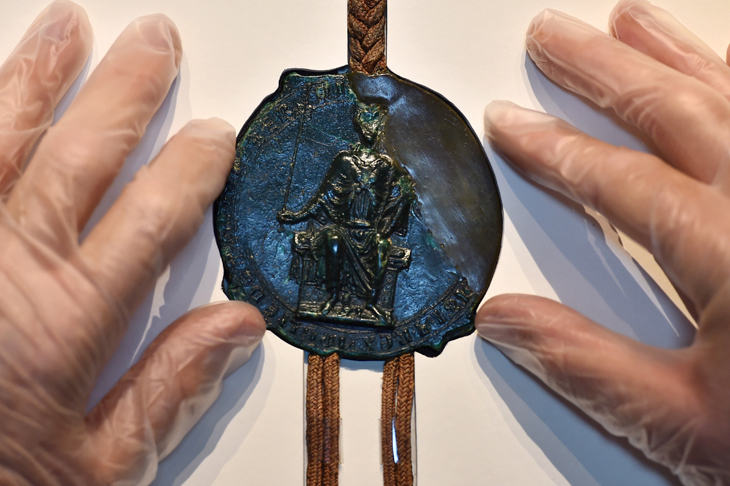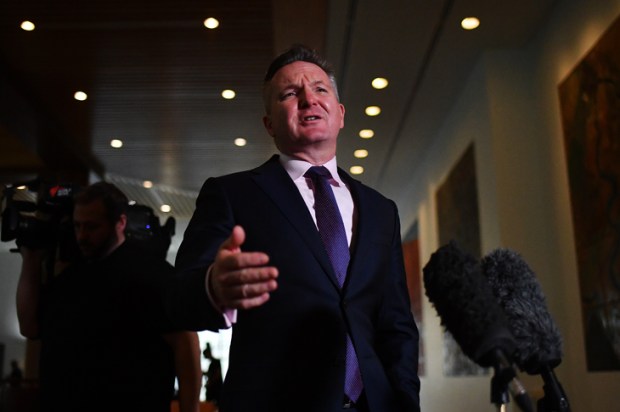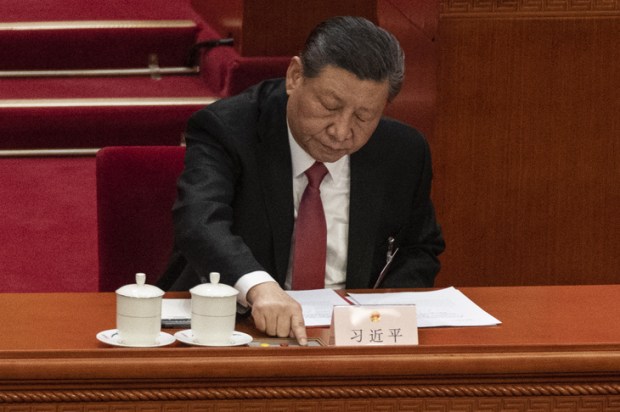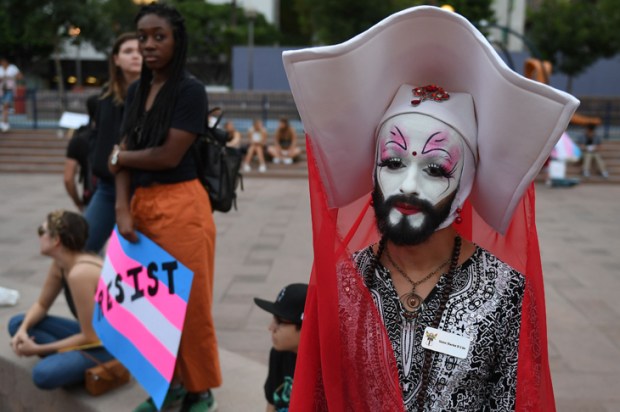In his classic Christian apologetic, Orthodoxy, G.K. Chesterton uses an allegory of a white post to describe the process of maintaining the things that matter. ‘If you leave a white post alone it will soon be a black post… if you particularly want it to be white you have to paint it white again.’
Politicians that now seek to call on the rule of law to defend their own careers may like to reflect on whether or not they have failed to ‘paint it white again’ when it comes to the foundational values of Western democracy.
The federal government’s reliance on the rule of law and the presumption of innocence in response to the unproven rape allegations against Attorney-General Christian Porter is undoubtedly correct. But its own history of discarding the rule of law means the government’s protests will carry less weight than they deserve.
Prime Minister Scott Morrison’s strong declaration that ‘I believe in the presumption of innocence and the rule of law, and [Attorney-General Porter] is entitled to that’ is a refreshing statement of principle and one that should be welcomed, no matter who it is in defence of.
The Prime Minister was responding to the assertion by the Labor opposition that the government must launch an ‘independent inquiry’ into the allegations. One may be forgiven for wondering whether Labor is questioning the independence of NSW Police, who inquired into and dropped the matter for lack of admissible evidence.
The appeal of an ‘independent inquiry’ is that the process usually sets aside legal rights and drops the standards for making adverse findings, which can destroy lives and end careers. This is common to quasi-judicial hearings, as anyone who is familiar with the renegade Independent Commission Against Corruption of New South Wales can confirm.
While the Prime Minister should be commended for dismissing the illiberal proposal, his message is undermined by the reality that the federal Coalition has participated in a long running bipartisan campaign to disregard the rule of law.
It was not so long ago that officials from the Attorney-General’s own department targeted Australian conservatives, including former Prime Minister Tony Abbott, for organising or participating in the hugely popular Australian CPAC conference in 2019. The bureaucrats in question used Foreign Interference Transparency Scheme (FITS) laws which themselves had been drafted to exclude principles of natural justice and the right to silence.
The FITS law—which was introduced by Christian Porter into parliament in 2017 and went into force during Morrison’s premiership in late 2018—is the subject of a legal challenge which is now before the High Court.
The Coalition has refused to acknowledge a problem in the law. In fact, amendments were passed in 2019 to expand the definition of ‘communication activity’ so that the reach of the law could be extended even further.
Research by the Institute of Public Affairs captured the problems in the FITS legislation as a part of an annual audit of federal legislation to uncover legal rights breaches.
The research—conducted between 2014 and 2019—has found that the number of legal rights breaches in federal legislation consistently increased. And not by a small margin. Between 2014 and 2019 the total number of legal rights breached that the research uncovered increased by about 45 per cent.
It goes without saying that between 2014 and 2019 the Coalition was in power federally and had the opportunity to reverse course on legal rights and reassert the rule of law in the laws that it passed.
Even now as the federal government rejects call for an independent inquiry into one of its own ministers, it retains a commitment to establish a Commonwealth Integrity Commission which would possess sufficient coercive powers to conduct independent inquiries as well as the power to hold public hearings for the purpose of collecting evidence which will turn into show trials.
Once established, a future Labor government will almost certainly weaponise the integrity commission with new powers and a broader scope in imitation of the NSW ICAC which has left a trail of destruction in its wake since its inception in 1988.
It seems the government has only learned of the rule of law when it affected one of their own. Some such as Josh Bornstein, principal lawyer at Maurice Blackburn, have alleged that the rule of law is being used as ‘convenient fig leaf’ designed to protect Porter from ‘scrutiny and accountability’.
The narrative that the rule of law protects the powerful and is an impediment to justice could not be further from the truth. The entire idea of the rule of law is to protect every person, especially the non-powerful, against the potential abuses of the coercive powers the state can deploy. It flows from the Christian idea that every individual possesses dignity conferred on them by their creator, and that the legal system should respect this dignity through its protections and legal rights.
Each and every generation of Australians is the custodian of centuries of English legal development and tradition dating back to the sealing of Magna Carta in 1215AD where the less powerful barons asserted their ancient rights and liberties against their abusive king.
As Dr Zachary Gorman notes in a newly released book, Summoning Magna Carta, ‘it cannot be denied that the Anglosphere nations are the inheritors of a very successful system of custom and institutions that, on the whole, should be cherished and maintained’.
One of the most—if not the most—important duty of every Australian government is to conserve the customs and traditions—like the rule of law—which protect the inherent dignity of the individual and make living in a free society possible.
But the federal government has failed to cherish and maintain the rule of law, and in degrading it in the eyes of all Australians, is finding that it may not be there when they need it.
Got something to add? Join the discussion and comment below.
Get 10 issues for just $10
Subscribe to The Spectator Australia today for the next 10 magazine issues, plus full online access, for just $10.
Morgan Begg is the director of the legal rights project at the Institute of Public Affairs.
You might disagree with half of it, but you’ll enjoy reading all of it. Try your first month for free, then just $2 a week for the remainder of your first year.














Comments
Don't miss out
Join the conversation with other Spectator Australia readers. Subscribe to leave a comment.
SUBSCRIBEAlready a subscriber? Log in